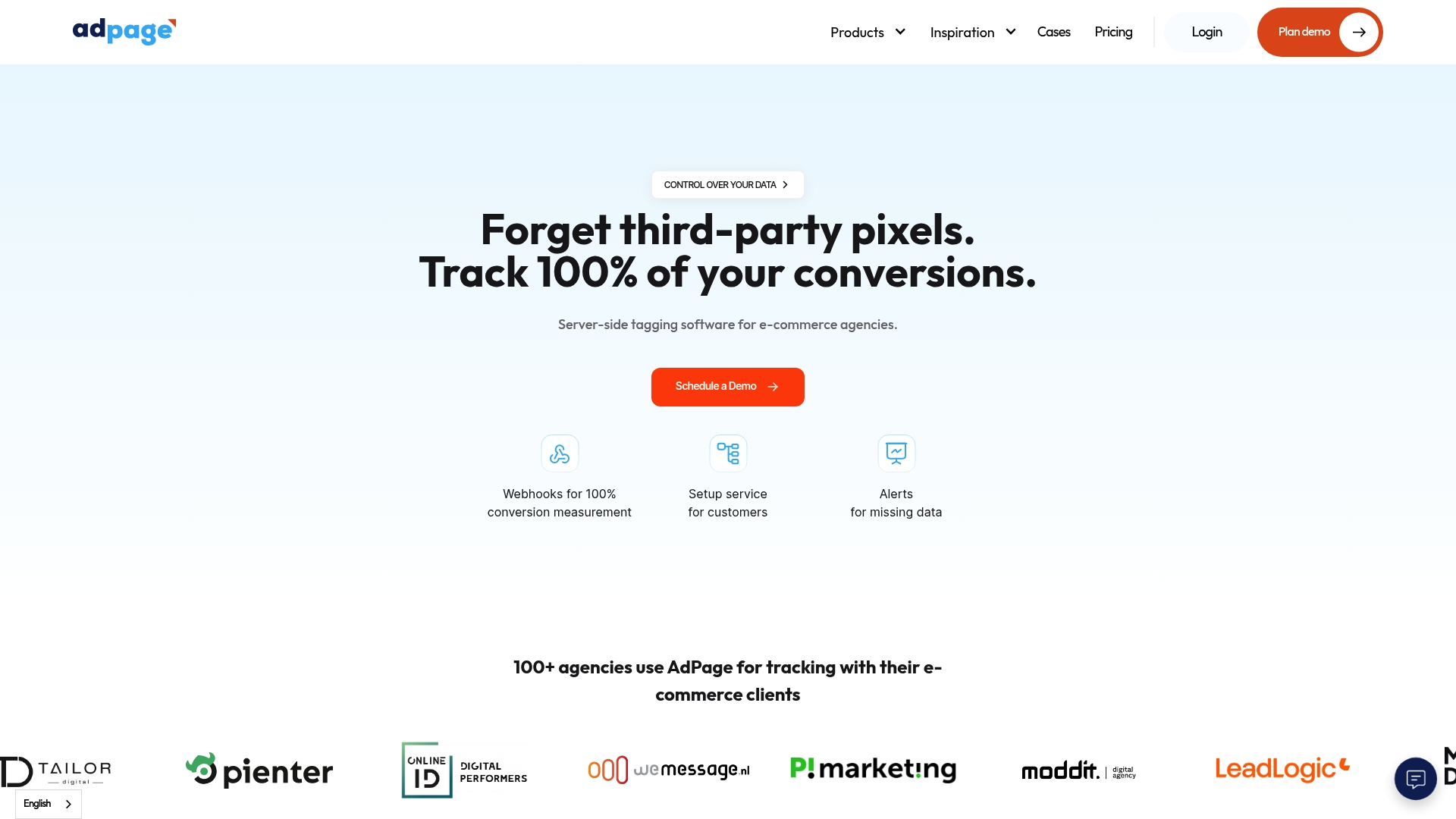Data privacy now shapes nearly every click and swipe you make online. Digital marketers handle massive amounts of personal data and regulatory fines for misuse have reached millions of pounds under GDPR. Yet most people assume data privacy is all about avoiding trouble with the law. The real story is that data privacy sets the rules for building real trust between brands and consumers and one misstep can rewrite a company's entire reputation.
Table of Contents
- What Is Data Privacy In Digital Marketing?
- Why Is Data Privacy Crucial For Online Marketing?
- How Data Privacy Influences Marketing Strategies
- Key Concepts And Regulations Impacting Data Privacy
- Real-World Implications Of Data Privacy In Digital Marketing
Quick Summary
| Takeaway | Explanation |
|---|---|
| Prioritize consent management | Always obtain explicit permission from users before collecting their data. This builds trust and ensures compliance with regulations. |
| Adhere to data minimization principles | Collect only the data necessary for specific marketing objectives, reducing potential privacy concerns. |
| Communicate privacy policies clearly | Transparent communication about data handling builds consumer trust and demonstrates ethical practices. |
| Implement robust security measures | Protect consumer data with advanced technology to prevent unauthorized access and mitigate risks of breaches. |
| Stay informed on regulations | Understanding GDPR and CCPA is essential for compliance and avoiding fines; regulations continually evolve. |
What is Data Privacy in Digital Marketing?
Data privacy in digital marketing represents a comprehensive approach to protecting consumer information during digital interactions and marketing processes. At its core, this concept involves safeguarding personal data collected through online platforms, ensuring that individuals' sensitive information remains secure and used ethically.
Defining Digital Marketing Data Privacy
Data privacy encompasses the strategies, policies, and technical measures implemented by organizations to protect personal information collected during digital marketing activities. This includes details such as browsing history, purchasing patterns, demographic information, contact details, and online behavior tracking. The fundamental goal is to provide transparency about how consumer data is collected, processed, stored, and potentially shared with third parties.
According to the International Association of Privacy Professionals, digital marketing data privacy involves several critical components:
- Consent Management: Obtaining explicit permission from users before collecting or processing their personal data
- Data Minimisation: Collecting only necessary information required for specific marketing purposes
- Secure Storage: Implementing robust technological protections to prevent unauthorized access
The Strategic Importance of Data Privacy
Understanding data privacy is crucial for digital marketers seeking to build trust with consumers. Modern customers are increasingly aware of their digital rights and expect organisations to handle their personal information responsibly. By prioritising data privacy, businesses can demonstrate respect for individual preferences while maintaining effective marketing strategies.
For those interested in deeper insights, read more about our guide to understanding user data privacy in ecommerce, which provides comprehensive strategies for navigating this complex landscape.
Why is Data Privacy Crucial for Online Marketing?
Data privacy has emerged as a critical foundation for sustainable and ethical digital marketing strategies. In an era where consumer data represents immense value, understanding its significance becomes paramount for businesses seeking to build trust and maintain long-term customer relationships.
Building Consumer Trust and Credibility
Consumer trust represents the cornerstone of successful digital marketing. When organizations demonstrate robust data privacy practices, they signal respect for individual rights and transparency. Modern consumers are increasingly sophisticated and actively evaluate brands based on their data handling approaches. According to the OECD, promoting privacy protection directly influences consumer confidence in digital interactions.
Key elements that contribute to building consumer trust include:
- Transparent communication about data collection processes
- Clear opt-in and opt-out mechanisms
- Comprehensive privacy policy documentation
- Proactive security measures
Legal and Financial Risk Mitigation
Data privacy is no longer optional but a legal requirement in many jurisdictions. Non-compliance can result in substantial financial penalties and significant reputational damage. Regulatory frameworks like GDPR in Europe and CCPA in California impose strict guidelines on data collection, processing, and storage. Companies that fail to adhere to these regulations risk severe consequences, including:
- Substantial monetary fines
- Legal proceedings
- Loss of customer trust
- Potential business license restrictions
For marketers seeking comprehensive insights into navigating these complex regulatory landscapes, explore our guide to tracking system challenges for deeper understanding.
Ultimately, data privacy in online marketing transcends mere compliance.
 It represents a strategic approach to building genuine, respectful relationships with consumers in an increasingly digital marketplace.
It represents a strategic approach to building genuine, respectful relationships with consumers in an increasingly digital marketplace.

How Data Privacy Influences Marketing Strategies
Data privacy has transformed from a peripheral concern to a central strategic driver in modern digital marketing. As consumer awareness and regulatory landscapes evolve, marketing strategies must adapt to prioritize ethical data management and transparent consumer interactions.
Redefining Targeted Marketing Approaches
Traditional data collection methods are becoming increasingly scrutinized, compelling marketers to develop more nuanced and consent-driven strategies. Personalization now requires explicit permission and careful data handling. According to Management Science research, privacy regulations have fundamentally altered online advertising effectiveness, pushing organizations to rethink their targeting methodologies.
Key strategic shifts include:
- Moving from broad data collection to precise, consensual information gathering
- Developing more transparent value propositions for data sharing
- Creating granular consent mechanisms
- Implementing advanced anonymization techniques
Strategic Competitive Differentiation
Data privacy has emerged as a significant competitive advantage. Companies that demonstrate robust privacy practices can distinguish themselves in crowded marketplaces. Consumer trust becomes a tangible business asset, with organizations capable of communicating clear, ethical data management strategies gaining substantial market credibility.
Important competitive privacy strategies encompass:
- Proactively communicating privacy policies
- Offering superior data control mechanisms
- Investing in advanced security infrastructure
- Developing user-friendly privacy interfaces
For marketers seeking deeper insights into adapting their approaches, explore our comprehensive guide to enhancing marketing strategies, which provides advanced techniques for navigating this complex landscape.
Ultimately, data privacy is no longer a compliance checkbox but a fundamental redesign of how organizations engage with consumer information, requiring continuous innovation and strategic thinking.
Key Concepts and Regulations Impacting Data Privacy.
The landscape of data privacy is complex and rapidly evolving, with regulations and fundamental principles shaping how organizations manage consumer information. Understanding these key concepts is crucial for digital marketers seeking to navigate the intricate world of data protection responsibly.
Global Regulatory Frameworks
Regulatory frameworks have become increasingly sophisticated in protecting individual data rights. The General Data Protection Regulation (GDPR) stands at the forefront of these efforts, establishing comprehensive guidelines for data handling. According to GDPR Information, this landmark legislation introduces critical principles that extend far beyond European borders, influencing global data privacy practices.
Key regulatory principles include:
The following table presents a concise comparison of major global data privacy regulations and their key features, helping clarify how they impact digital marketing practices.
| Regulation | Region/Scope | Key Features |
|---|---|---|
| GDPR (General Data Protection Regulation) | Europe/Global | Explicit consent, data minimization, right to access/erase, breach notification, heavy fines |
| CCPA (California Consumer Privacy Act). | California/USA | Consumer rights to know and delete data, opt-out of sale, disclosure requirements, fines |
- Explicit consent requirements for data collection
- Right to access personal data
- Right to be forgotten
- Mandatory breach notifications
- Significant financial penalties for non compliance
Fundamental Data Privacy Principles.
Beyond specific regulations, several universal principles govern responsible data management. These principles transcend geographical boundaries and provide a robust framework for ethical data handling. Transparency and user control emerge as central themes in modern data privacy approaches.
Critical privacy principles encompass:
This table organizes the fundamental data privacy principles, summarizing each concept for easy reference and deeper understanding.
| Principle | Explanation |
|---|---|
| Data minimization | Collect only data absolutely necessary for specific marketing purposes |
| Purpose limitation | Use data exclusively for predefined, legitimate objectives |
| Storage limitation | Retain personal data only for as long as it is needed |
| Integrity and confidentiality | Ensure data security through protection from unauthorized access or breaches |
| Accountability | Take responsibility for ensuring data protection and demonstrating compliance |
- Data minimization
- Purpose limitation
- Storage limitation
- Integrity and confidentiality
- Accountability
For marketers seeking deeper understanding of managing user consent effectively, explore our comprehensive guide to consent management, which provides practical insights into implementing these complex principles.
Ultimately, data privacy is not merely a legal requirement but a fundamental commitment to respecting individual rights in an increasingly digital world.
Real-World Implications of Data Privacy in Digital Marketing
Data privacy is no longer an abstract concept but a critical operational reality with profound consequences for businesses and consumers alike. The digital landscape has transformed how personal information is collected, processed, and utilized, bringing unprecedented challenges and opportunities.
Consumer Trust and Business Reputation
Consumer perception has become intrinsically linked with data handling practices. According to the United Nations Capital Development Fund, inadequate data protection can dramatically reduce individuals' trust in digital services. When organizations mishandle personal information, the repercussions extend far beyond immediate financial penalties.
Key reputation risks include:
- Permanent loss of customer confidence
- Negative public perception
- Decreased brand loyalty
- Potential viral social media backlash
- Long-term customer acquisition challenges
Financial and Legal Consequences
The financial implications of data privacy breaches are substantial and multifaceted. Regulatory non-compliance can result in devastating economic consequences for organizations, ranging from immediate financial penalties to long-term market reputation damage.
Potential financial impacts and:
- Significant regulatory fines
- Costly legal proceedings
- Mandatory compensation to affected individuals
- Potential business operation suspensions
- Increased cybersecurity investment requirements
For digital marketers seeking comprehensive insights into navigating these complex tracking challenges, explore our detailed guide on tracking system challenges, which provides strategic approaches for mitigating risks.
Ultimately, data privacy represents a critical intersection between technological capability, ethical responsibility, and strategic business management.
Turn Data Privacy Concerns Into Marketing Success with AdPage
Are you struggling with the challenges of data privacy in digital marketing? Navigating today's complex world of consent management, evolving regulations, and increased consumer scrutiny can feel overwhelming. The push for ethical data handling and transparent user consent, as discussed in our article, means traditional analytics tools often cannot provide the accuracy or compliance you now require. This puts your marketing effectiveness and brand trust at risk.

With AdPage, you gain access to advanced server-side tagging solutions, robust consent management, and reporting tools that guarantee GDPR compliance. Our platform enables you to improve conversion tracking accuracy for every online campaign while protecting user data and building trust. Integrate seamlessly with your favourite e-commerce systems and track 100% of your conversions with confidence. Discover how our consent management features and solutions for overcoming data tracking challenges keep your business ahead of privacy demands. Take control of your digital marketing future and protect your brand by visiting AdPage today. Make compliance your competitive edge and turn trust into conversions now.
Frequently Asked Questions
What is data privacy in digital marketing?
Data privacy in digital marketing refers to the practices and policies that organizations implement to protect consumer information collected during online interactions. It involves ensuring that personal data is secured and used ethically.
Why is data privacy important for businesses?
Data privacy is crucial for businesses as it builds consumer trust, mitigates legal and financial risks, and ensures compliance with regulations. A strong commitment to data privacy helps establish credibility and fosters long-term customer relationships.
How does data privacy influence marketing strategies?
Data privacy influences marketing strategies by driving organisations to adopt consent-based data collection methods. Marketers must now focus on obtaining explicit permission from consumers and creating transparent value propositions for sharing personal data.
What are the key regulations affecting data privacy?
Key regulations affecting data privacy include the General Data Protection Regulation (GDPR) and the California Consumer Privacy Act (CCPA), which set strict guidelines for data handling, consent requirements, and impose significant penalties for non-compliance.



.png)
